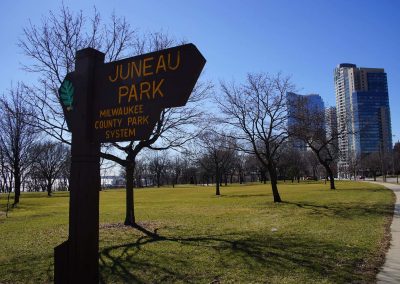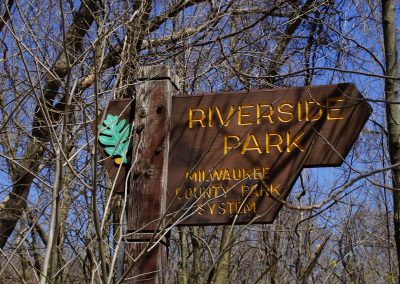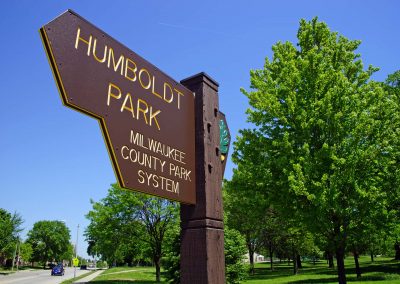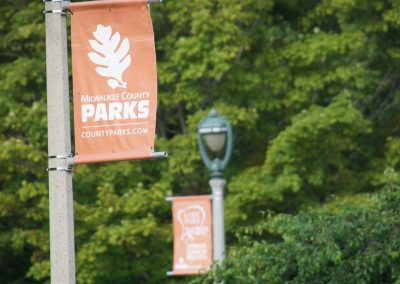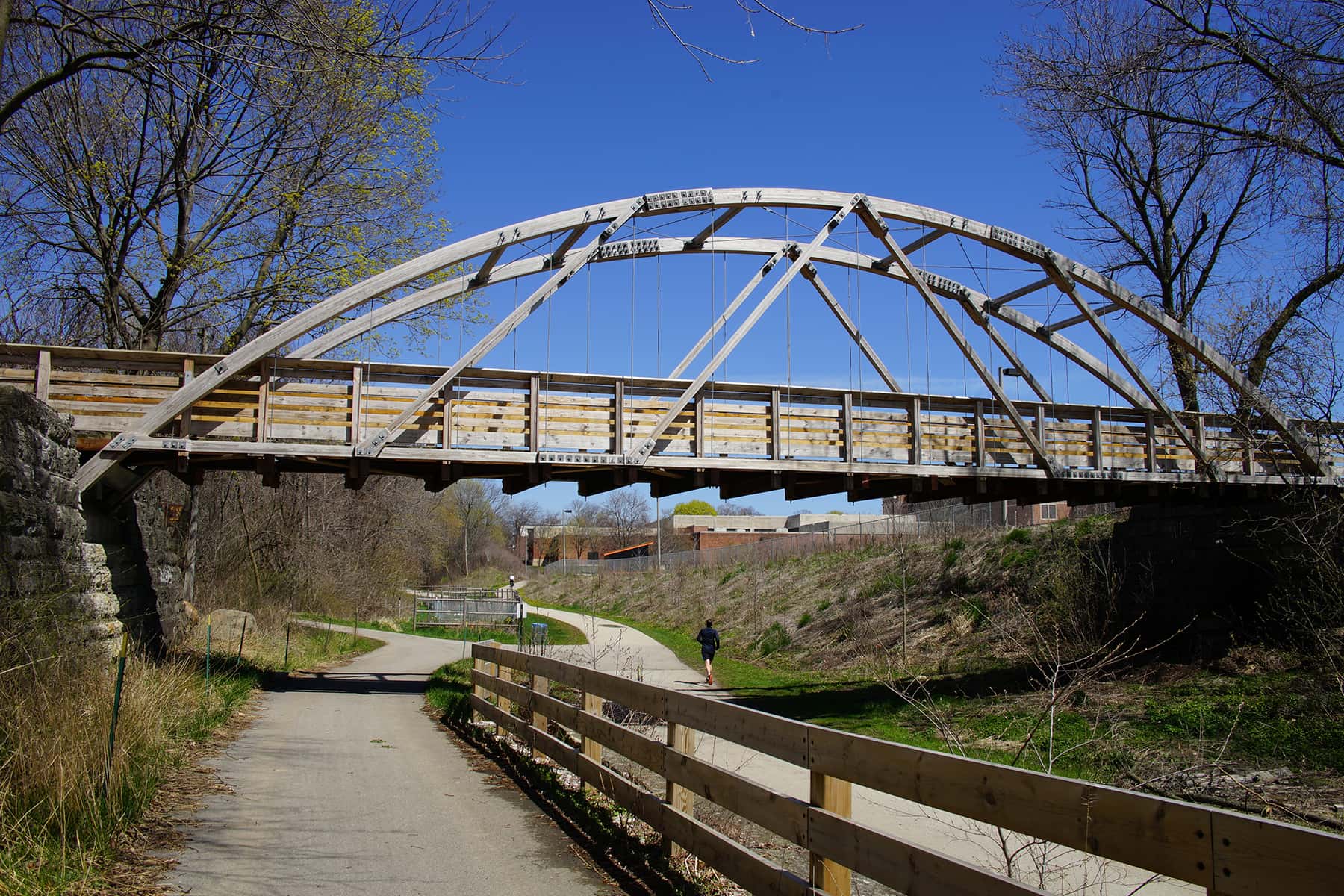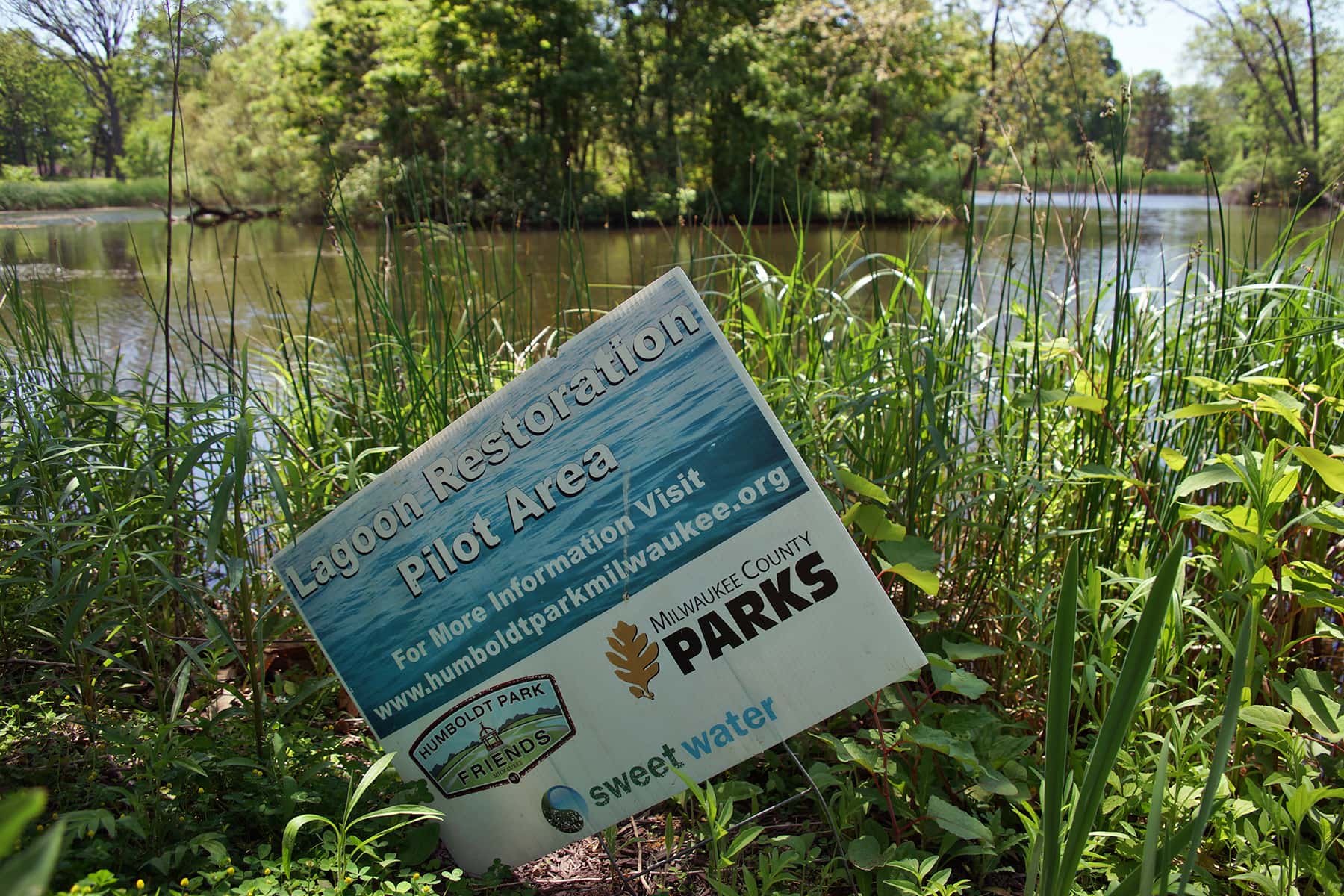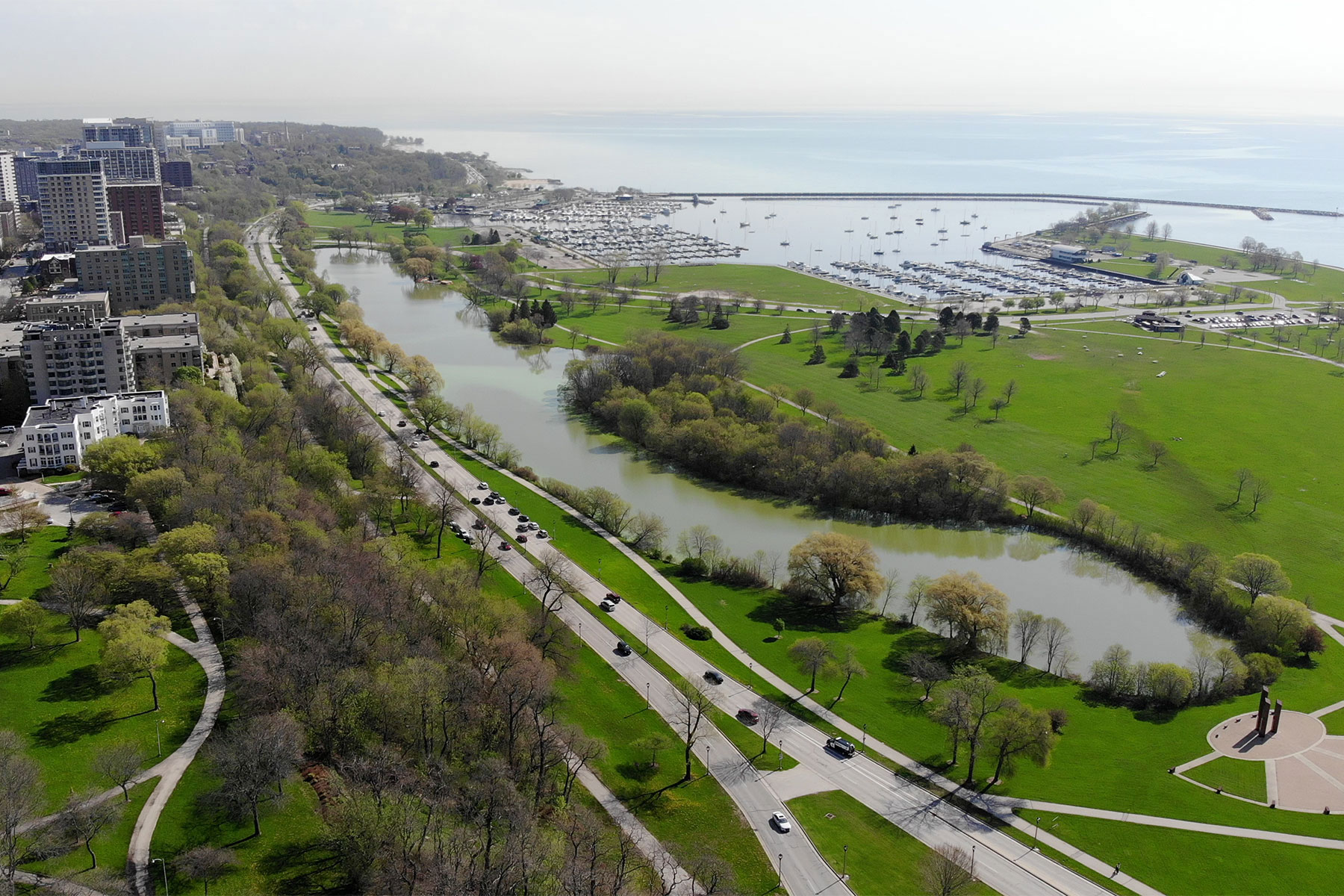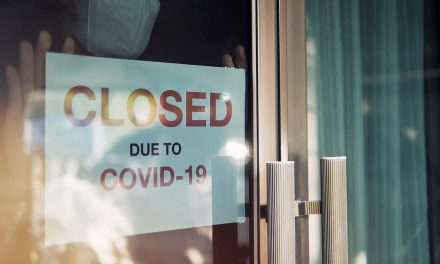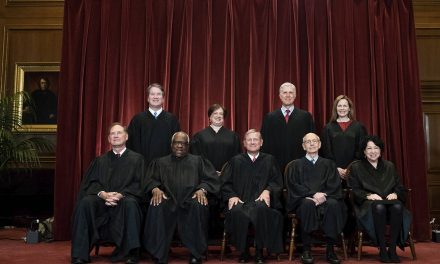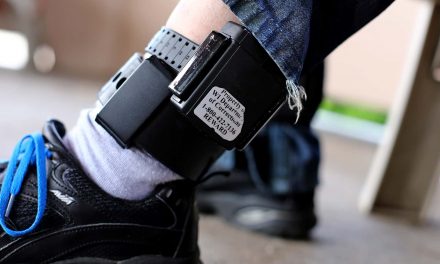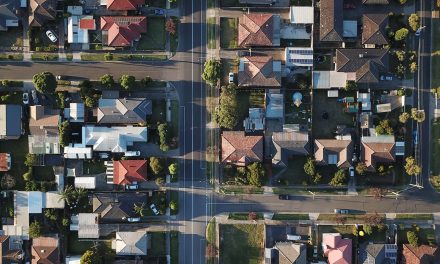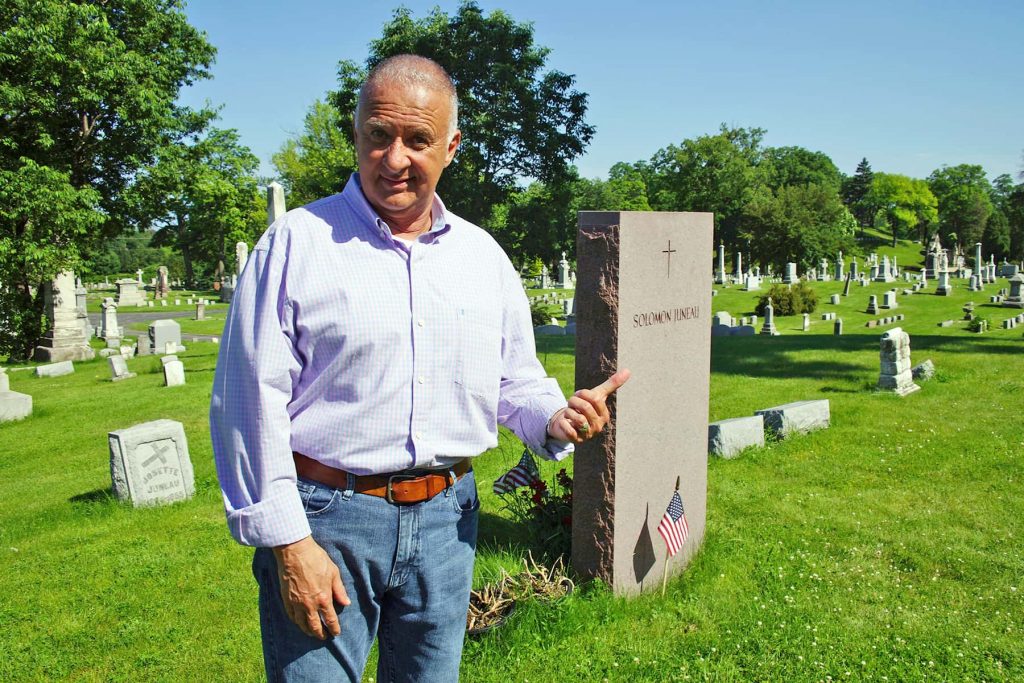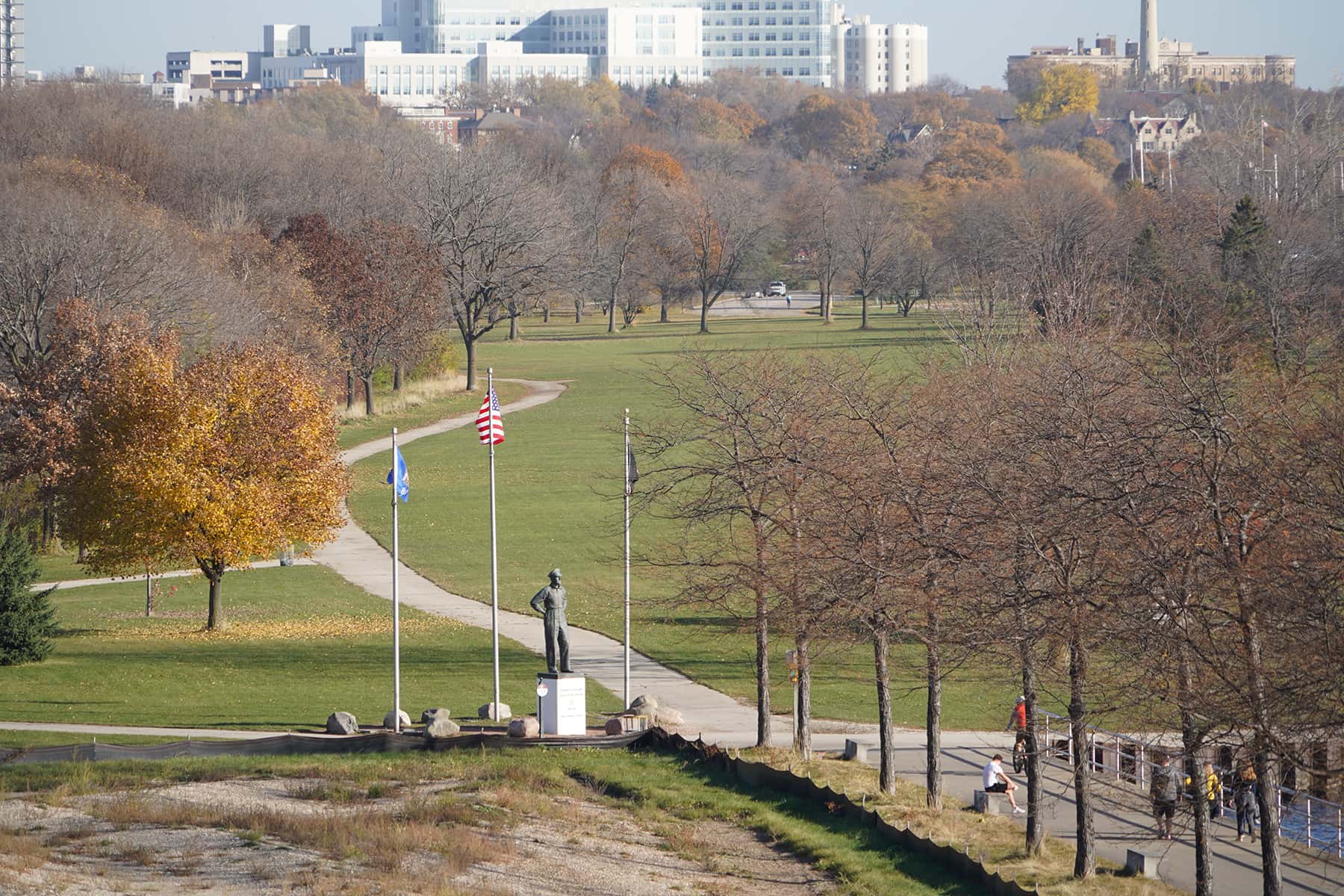
The past few years have reinvigorated our love of parks, many of us realizing that the only way to be with our loved ones safely is outside. We meet on park benches, picnic tables, walks on nature trails or even on a swing set. Parks are one of the few free, accessible recreational spaces that remain in this country.
It would be a terrible shame to lose them. Yet, some days, that feels like where we are. You may have seen press in recent years about the fiscal challenges facing our Milwaukee County Parks System. The facts are stark. Our County Parks have half of a billion dollars in maintenance, building repair/replacement and other project costs, yet only receive around $10 million in capital project dollars annually.
According to a recent Wisconsin Policy Forum report, Milwaukee County has seen a consistent, 30-year decline in funding, leading to our parks department having one-third of the staff it had in the 1980s, but it has the same acreage to manage. With over 15,300 acres of land to manage, that means each Parks Department employee is responsible for managing 28 Lambeau Fields.
To make matters worse, the parks that have seen the most disinvestment are in neighborhoods that have already fallen prey to a history of oppressive systemic forces that encouraged racially discriminatory practices toward Black and brown communities. That means that many Milwaukee neighbors, especially our neighbors of color, have fewer vibrant, safe, free outdoor spaces to gather.
The way forward
While many articles about our parks system don’t move beyond doom and gloom, those of us working closely with our County Parks see a different story. There is immense energy, countless people loving our parks and a movement that has been building for decades to save this incredible asset that is a defining feature of our county.
We see the newly re-formed friends group at a North Side Milwaukee park that is hosting events, planning to capture the rich oral history of their neighbors and reinvigorating their sometimes-underutilized park. We see the South Side resident who can single-handedly tell you the history of every park in his neighborhood and has attended all the community meetings to voice his opinion and stay up-to-date on what is going on in his parks system. We see the nonprofit organizations throughout our parks system that lease County buildings and provide free youth programming, activities and events for neighbors. We see the residents at a West Allis park that bring families together every year with a pancake breakfast in the park.
Building a parks movement is the way forward. We’ve seen the potential and now is an opportune time to grow the movement and get even more Milwaukee County residents involved. We believe there are a number of tangible things we can do to move forward.
First, leveraging partnerships. The Milwaukee Parks Foundation, founded in 2019, is focused on supporting Milwaukee County in leveraging even more partnerships. Whether its programmatic partners, like Journey House at Baran Park and the Urban Ecology Center at Washington and Riverside Parks, donors, volunteers or a combination, everyone has a part to play. The Milwaukee Parks Foundation is building infrastructure to be able to harness this energy and bring more resources to our parks.
Second, through grassroots engagement. Residents can get involved in friends groups through the Park People. Friends groups are local, grassroots groups consisting of energized residents who take on park projects and activities. Residents can join – or start their own – friends group. The Milwaukee Parks Foundation aims to set aside some funding to support grass roots, resident-led events and activities in 2022, and Milwaukee County has long looked favorably on the friends groups and works to support them when possible.
Third, we need to prioritize the resources we do have. By investing in communities that have seen the most disinvestment, we can have a deeper impact on our parks system. A thriving, healthy, sustainable parks system is key for every community in Milwaukee County. When we think about all the recreational sports leagues, family cookouts and annual events that happen in our neighborhoods, parks come into focus as an important element of our community. The organic, positive social interaction fostered by our parks is hard to replicate and it is a part of living in Milwaukee County that should be available for all residents, no matter their ZIP code.
Not only is prioritizing this resource the right and just thing to do, but it will have effects that reverberate throughout our parks system and is in alignment with Milwaukee County’s vision of becoming the healthiest county in Wisconsin through achieving racial equity. It all adds up to an intentional investment of precious resources of funding, staff capacity and community energy into supporting the health and wellness of our community, rooted in racial equity.
Lastly, and arguably most important, we need to continually advocate for sustainable funding. The Wisconsin Policy Forum will be seeking feedback through the second iteration of its report to identify the best approach. In addition to the Wisconsin Policy Forum, Preserve Our Parks has been a tireless advocate for more park funding. Whether it’s voting in leaders that champion green space equity, or supporting Milwaukee County’s efforts to secure additional funding via a local option sales tax, we residents have more power than we know.
What will it take? YOU
The challenges facing our County Parks system are complex and varied, but we are not doomed. Consistently, across the country, local governments are being squeezed and asked to do more with less. Local leaders have faced myriad challenges and a changing landscape due to political stalemates, injustice, COVID-19, climate change and so much more. Suffice it to say, Milwaukee County is not alone. Through a combination of leveraging partnerships, grassroots engagement, prioritizing equity and finding creative sustainable funding sources, we can forge a new path forward.
It will take all of us to build this movement. Whether it’s cleaning up trash in your local park, getting involved in a friends group, holding your elected officials accountable for investing in our green spaces or bringing more friends to your favorite park – our parks are for US. If they are to remain that way, we will need to truly foster that collective ownership and all do our part.
Marcelia Nicholson, Guy Smith, and Rebecca Stoner
Lee Matz
Originally published on the Milwaukee Neighborhood News Service as OPINION: We need to preserve our county parks. Here’s how.
Marcelia Nicholson is chairwoman of the Milwaukee County Board, Guy Smith is executive director of Milwaukee County Parks, and Rebecca Stoner is executive director of Milwaukee Parks Foundation.

